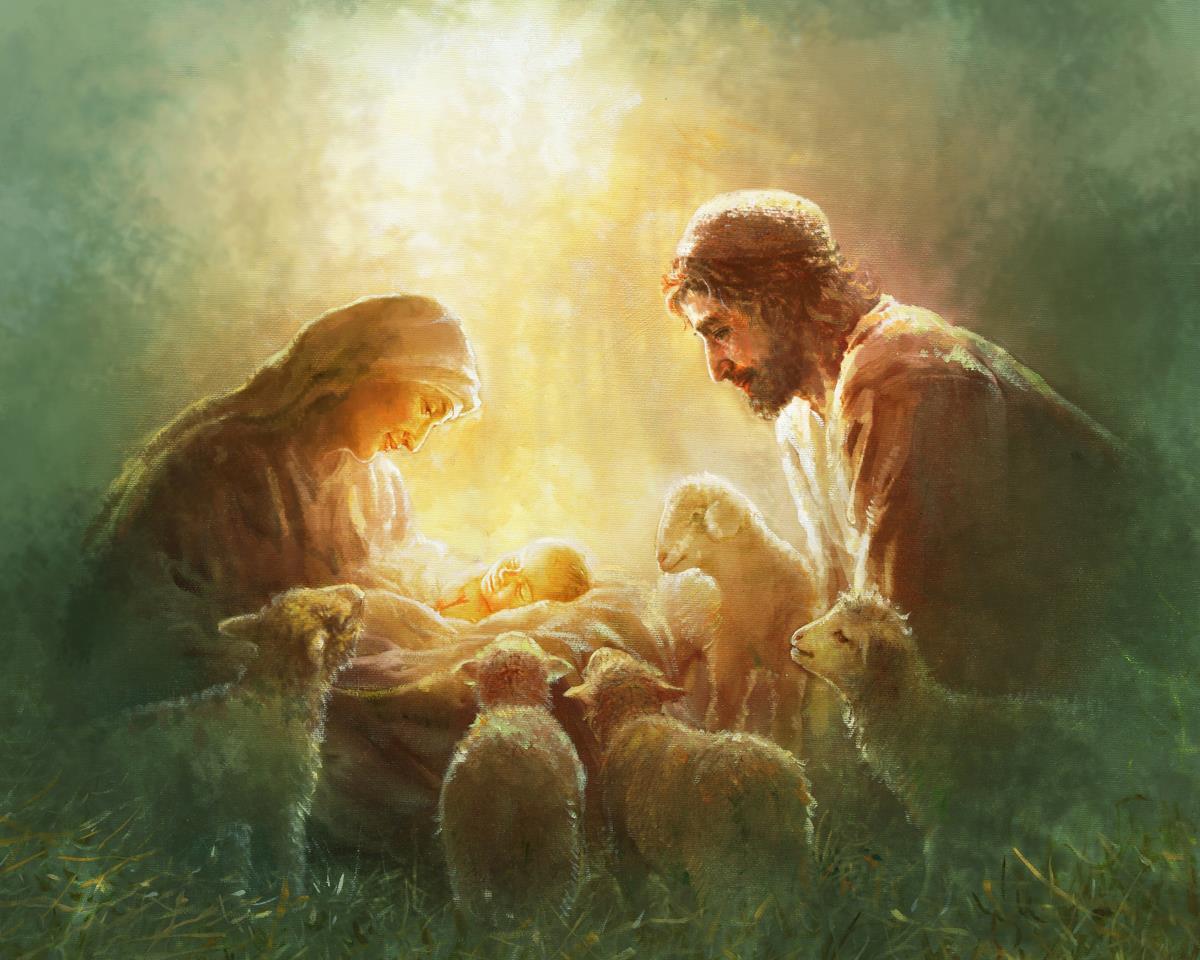
Click to Listen
The very first verse of the New Testament found in the Book of Matthew tells us that Jesus, the Son of God, is also “the son of David” and “the son of Abraham” (see Matthew 1:1). The Father could have had His Son come through the prophets Samuel and Melchizedek rather than David and Abraham. Both were righteous and loved by the Father. Yet, He didn’t do that. I believe a reason that He did it this way and had Matthew begin his book this way is because God wants us to know that from the beginning, He sent us His Only Begotten Son to help us endure to the end, even when we think we can’t.
Through the Apostle Paul, the Lord tells us how He felt about David. “I have found David the son of Jesse, a man after mine own heart, which shall fulfil all my will” (see Acts 13:22). The Lord stated this knowing full well the decisions, good and bad, that David would make. We learn from the Lord that because–
David did that which was right in the eyes of the Lord, and turned not aside from any thing that He commanded him all the days of his life, save only in the matter of Uriah the Hittite (see 1 Kings 15:5),
…[that] [H]e promised him to give him alway[s] a light, and to his children (see 2 Kings 8:19).
Though David fell “from his exaltation” due to Uriah’s murder, the Lord’s promise to him permits us to receive “the sure mercies of David” through “an everlasting covenant” paid through the blood of David’s descendant, even the Son of God (see D&C 132:39, Acts 13:34, Isaiah 55:3, Hebrews 13:20).
Abraham lived during Melchizedek’s time. We know that Melchizedek was a magnificently righteous man. Moses tells us that he “was a man of faith, who wrought righteousness,” was “approved of God,” and “was called the Prince of peace” (see JST Genesis 14:26-27, 33, Alma 13:18). The prophet Alma taught that–
Now, there were many before him, and also there were many afterwards, but none were greater (Alma 13:19).
Though this good man was a wonderful servant of the Lord, our Heavenly Father sent His Son through Abraham, a man who was initially childless in his old age and whose father disobeyed our Heavenly Father’s will. We know that Abraham was righteous. However, because of his upbringing, he likely struggled to become that. Of Abraham’s likely struggle to live righteously, President Lorenzo Snow said—
[I]t is consistent to believe that under the blessing of God he was enabled to acquire it, after going through a similar warfare with the flesh as we are, and doubtless being overcome at times and then overcoming until he was enabled to stand (Deseret News: Semi-Weekly, June 3, 1879, 1).
Abraham “who received the priesthood from Melchizedek” also received the everlasting covenant from the Lord. The Lord told him that–
I know the end from the beginning; therefore my hand shall be over thee.
And I will make of thee a great nation, and I will bless thee above measure, and make thy name great among all nations, and thou shalt be a blessing unto thy seed after thee, that in their hands they shall bear this ministry and Priesthood unto all nations;
And I will bless them through thy name; for as many as receive this Gospel shall be called after thy name, and shall be accounted thy seed, and shall rise up and bless thee, as their father (see D&C 84:14, Abraham 2:8-11).
In this fallen world, it is easy to focus on our fallen natures. We may see our weaknesses and wonder whether we’re going to make it. We may feel uncertain about our ability to keep the commandments and covenants. We may be disheartened at what appears to be a lack of success in our relationships with family, friends, and neighbors. We may be distressed about repeatedly disappointing our Heavenly Father and Savior in the things we think, say, or do.
Our Heavenly Father sent His Son as our Savior and Redeemer, over two millenia ago, to show us that They not only want to help us but also that They will help us. Through the Master’s merits, He lovingly extends to us His mercy. He assures us through the Holy Ghost that with His help, we can reach our promised land, even eternal life. As we obey, repent, and have faith in the Holy One of Israel, He will make us holy. Through our spiritual rebirth, we will see the splendor and understand the meaning of His birth.
Ten years ago today (December 24, 2014), before he passed away seven months later, President Boyd K Packer of the Quorum of the Twelve Apostles posted on social media a poem he wrote. He had shared it nearly twenty years before in General Conference. Yet, on this day, Christmas Eve, he updated what he penned to commemorate this sacred season.
In ancient times the cry “Unclean!”
Would warn of lepers near.
“Unclean! unclean!” the words rang out;
Then all drew back in fear,
Lest by the touch of lepers’ hands
They, too, would lepers be.
There was no cure in ancient times,
Just hopeless agony.
No soap, no balm, no medicine
Could stay disease or pain.
There was no salve, no cleansing bath
To make them well again.
But there was One, the record shows,
Whose touch could make them pure;
Could ease their awful suffering,
Their rotting flesh restore.
His coming long had been foretold.
Signs would precede His birth.
A Son of God to woman born,
With power to cleanse the earth.
The day He made ten lepers whole,
The day He made them clean,
Well symbolized His ministry
And what His life would mean.
However great that miracle,
This was not why He came.
He came to rescue every soul
From death, from sin, from shame.
For greater miracles, He said,
His servants yet would do,
To rescue every living soul,
Not just heal up the few.
Though we’re redeemed from mortal death,
We still can’t enter in
Unless we’re clean, cleansed every whit,
From every mortal sin.
What must be done to make us clean,
We cannot do alone.
The law, to be a law, requires
A pure one must atone.
He taught that justice will be stayed
Till mercy’s claim be heard
If we repent and are baptized
And live by every word.
That is the never-ending gift
That came that Christmas day
When Mary first held close her son
And shepherds came to pray.
If we could only understand
All we have heard and seen,
We’d know there is no greater gift
Than those two words—“Washed clean!”
(Boyd K Packer, Facebook, December 24, 2014)
As we remember the innocence of the birth of our Redeemer, let us remember that it reflects a future day when we will stand before Him where He holds us innocent and makes us perfect through the price that He paid for us and the price we paid to receive His gift. We will then experience the “state of never-ending happiness” that He and His Father have promised us from the beginning (see Mosiah 2:41). May we have this hope for ourselves and those around us, this Christmas and always, is my prayer for you and me.
